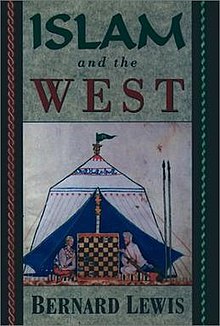Summary
The sixth chapter of the book explores the meaning of Orientalism. It is argued that the word orientalism was until relatively recently used mainly in two senses, to denote either a branch of scholarship or a school of painting. However, Lewis contends that it has now been given a new meaning, "that of unsympathetic or hostile treatment of oriental peoples." (p100).
The historical beginnings of oriental scholarship in Western Europe are dated to the time of the Renaissance. Its history is then traced from relatively narrow roots where one discipline, philology, recovered, studied, published and interpreted texts relating to one region—that which is now called the Middle East—to its gradual expansion to include other disciplines such as philosophy, theology, literature and history and a diversity of areas from the Ottoman Empire to India and China.
Having reached a point where the multi-disciplinary approaches and the sheer number of regions under study rendered the term "Orientalist" obsolete, Lewis argues it was, in effect, formally abandoned by those he terms accredited orientalists at the 29th International Congress of Orientalists in 1973. Lewis laments that although the term has now been revived its usage has changed to that of a term of polemic abuse.
An exploration of the rise of anti-orientalism follows where critics from a diversity of sources ranging from Islamicists to Arab Nationalists to Marxist theorists are briefly considered before Lewis concludes by identifying its main exponent in the United States, Edward Said.
A significant proportion of the remainder of the chapter is devoted to a critique of Said's book Orientalism published in 1978. [1] Lewis attributes the success of Said's book to its anti-Western stance, its use of, "the ideas, and still more the language of currently fashionable literary, philosophical and political theories." (p114) and its apparent simplification of complex problems.
Finally the chapter concludes with a brief review of the counter-critique from Arab writers such as the Egyptian philosopher Fu'ad Zakana.
